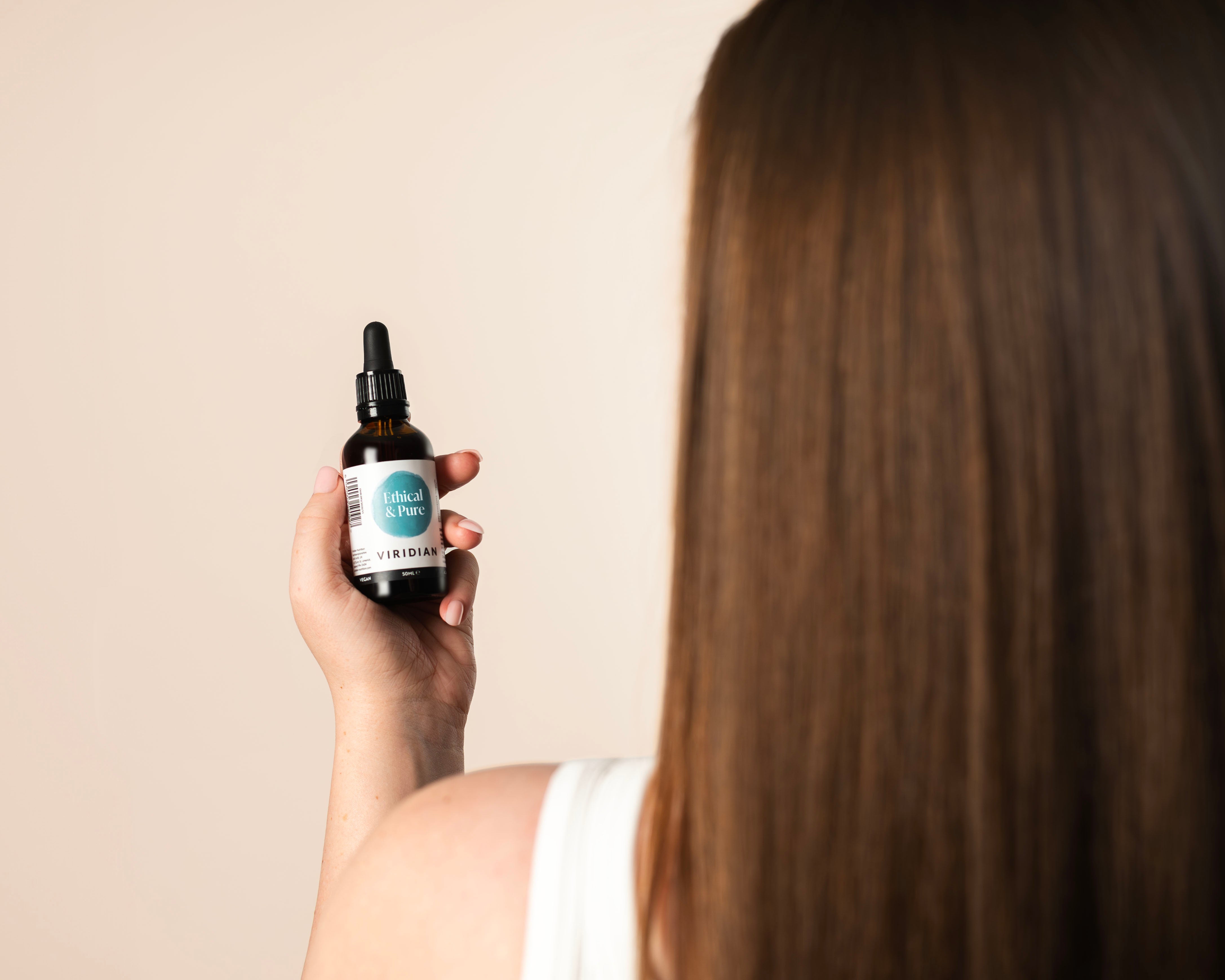Introduction
Lemon balm (Melissa officinalis) is a lemon-scented herb that comes from the same family as mint. This herb naturally contains various active compounds such as rosmarinic acid, flavonoids, and triterpenes. Native to south-central Europe, the Mediterranean Basin, Iran, and Central Asia, lemon balm was used in ancient Greece and Rome topically for the treatment of wounds.

In the 17th Century the English Herbalist Culpeper claimed it could improve mood and stimulate clear thinking. Clinical trials have highlighted that lemon balm extracts standardised to rosmarinic acid have demonstrated clear benefits in regards to memory and cognitive performance.
Natural uses for lemon balm include chopping and putting into salads, added to hot water and honey to make a natural tea, used in skin balm as a natural mosquito repellent and even used as a hair rinse and scalp clarifier!
The top 8 health benefits of lemon balm are:
-
Mood enhancing - Research has shown that a dose of 600mg per day resulted in reduced negative mood effects and increase self-ratings of calmness1.
-
Stress Management - In a recent study lemon balm extract was given at a dose of 300mg twice daily to a group of stressed people with mild-to-moderate anxiety and sleep disturbances. This study found that lemon balm reduced anxiety by 18%, reduced anxiety-associated symptoms by 15% and lowered insomnia by 42%2.
-
Anti-Viral - The administration of lemon balm mint extract cream using dried extract from Melissa officinalis L. leaves, during an acute recurrence of herpes labialis significantly reduced the intensity of symptoms associated with this virus3. In vitro studies, lemon balm extract demonstrated the ability to reversibly block virus entry into the cell3.
-
Combats Free Radicals - Results of biological investigations showed that rosmarinic acid (in lemon balm), depending on the concentration, reduced the amount of intracellular reactive oxygen species (ROS) in human keratinocyte cells and enhanced cell viability under oxidative stress4.
-
Aids Sleep - In people suffering from stress related sleep problems, lemon balm has been shown to improve sleep when taken at a dose of 300 mg twice daily for approximately two weeks5.
-
Improves Concentration - A study investigating 300mg of lemon balm extract supplementation on stress and cognitive function found that 300mg significantly improved maths performance alertness and immediate recall compared to baseline6.
-
Ageing Brain Health - Lemon balm extract has been studied in people with mild to moderate Alzheimer's disease. After four months of treatment lemon balm was found to produce a significantly better outcome on cognitive function (Alzheimer’s disease assessment scale) than placebo and helped to reduce feelings of agitation7.
-
Bolsters Memory - Lemon balm extract impacts on receptor binding properties, which in turn, have shown benefit for improved cognitive effects such as alertness and memory8.
Benefits of a Lemon Balm Supplement
Whilst lemon balm is great to add to teas, smoothies and chopped in salads, a lemon balm supplement can often be found as a standardised extract. For example, an extract can be in a ratio of 5:1, meaning the supplement is 5 times stronger than the herb itself.
Taking a high concentration extract would provide a therapeutic dose of lemon balm and can be taken any day of the year. Lemon balm plant only grows during the hot season, so it could be more difficult to obtain the herb all year round for use in foods.
When purchasing a lemon balm supplement, it is important to check for the dosage given on the label as well as check the percentage of rosmarinic acid in the product. Ensure the product has been sustainably sourced, a good way to check this is by looking for The Soil Association stamp on the product label.
For more information, we recommend visiting your local independent health store. Find your nearest one here: www.findahealthstore.com
Author: Amy Hipwell is a Technical Advisor at Viridian Nutrition. She holds a BSc in Nutrition.
References
1) Kennedy, D., O. Little, W., & Scholey. 2004 Attenuation of Laboratory-Induced Stress in Humans After Acute Administration of Melissa officinalis (Lemon Balm). Psychosomatic Medicine 66, 607–613.
2) Cases J, Ibarra A, Feuillère N, Roller M, Sukkar SG. Pilot trial of Melissa officinalis L. leaf extract in the treatment of volunteers suffering from mild-to-moderate anxiety disorders and sleep disturbances. Med J Nutrition Metab. 2011 Dec;4(3):211-218
3) Koytchev, R., Aiken, G., Dundarov, S. 1999. Balm mint extract (Lo-701) for topical treatment of recurring Herpes labialis, Phytomedicine, 6 (4), 225-230.
4) Ramanauskiene K, Stelmakiene A, Majiene D. 2015. Assessment of Lemon Balm (Melissa officinalis L.) Hydrogels: Quality and Bioactivity in Skin Cells. Evid Based Complement Alternat Med, 30 (2), 55-67.
5) Cases J, Ibarra A, Feuillère N, Roller M, Sukkar SG. Pilot trial of Melissa officinalis L. leaf extract in the treatment of volunteers suffering from mild-to-moderate anxiety disorders and sleep disturbances. Med J Nutrition Metab. 2011 Dec;4(3):211-218.
6) Scholey, A., Gibbs, A., Neale, C., Perry, N., Ossoukhova, A., Bilog, V., Kras, M., Scholz, C., Sass, M., & Buchwald-Werner, S. (2014). Anti-stress effects of lemon balm-containing foods. Nutrients, 6(11), 4805–4821.
7) Akhondzadeh S, Noroozian M, Mohammadi M, Ohadinia S, Jamshidi AH, Khani M. Melissa officinalis extract in the treatment of patients with mild to moderate Alzheimer's disease: a double blind, randomised, placebo-controlled trial. J Neurol Neurosurg Psychiatry. 2003 Jul;74(7):863-6.
8) COGNOME, N., 2015. Investigation of a Melissa officinalis special extract on Cognition I. www. sabinsa. com, 26, p.34.
The information contained in this article is not intended to treat, diagnose or replace the advice of a health practitioner. Please consult a qualified health practitioner if you have a pre-existing health condition or are currently tak







